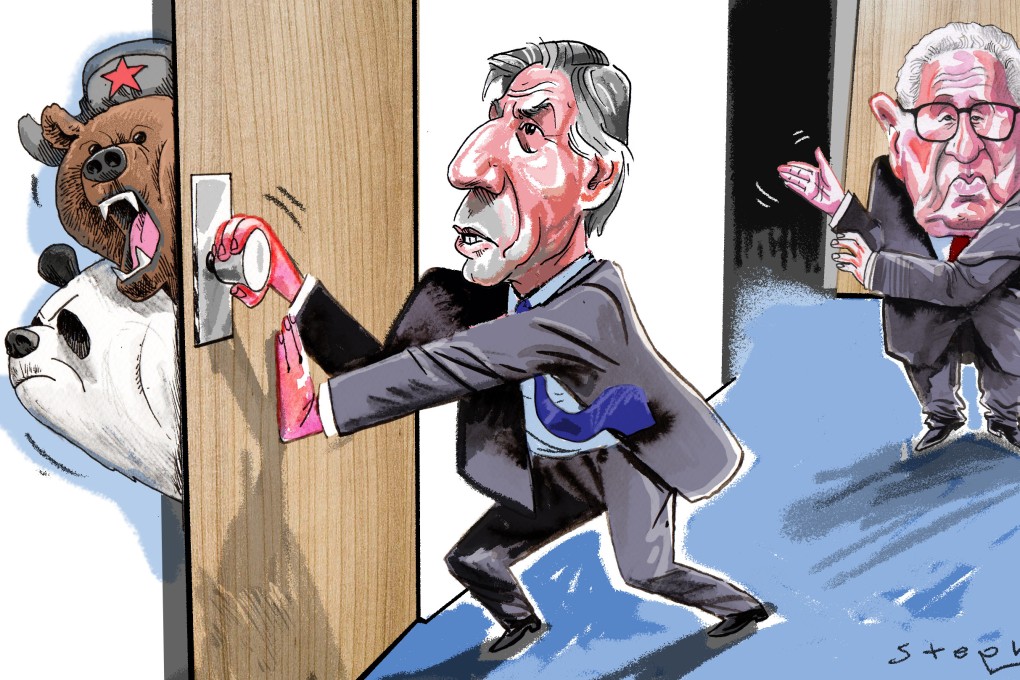Opinion | In Kissinger’s shadow: how will history judge Blinken’s diplomatic manoeuvring on China and Russia?
- Kissinger opened the door to relations with China with his 1971 trip to Beijing and bagged the secretary of state job two years later
- Today, US Secretary of State Antony Blinken appears to have alienated China, while National Security Adviser Jake Sullivan seems to be keeping lines of communication open

When Henry Kissinger speaks, the world listens. The former US secretary of state’s address to the World Economic Forum at Davos, Switzerland, on May 23 was no exception.
Aged 99, Kissinger remains true to the theory of the balance of power that he has long championed by appealing for Russia, now widely deemed the outright invader of its neighbour Ukraine, not to be completely isolated and for the US-China adversarial relationship to be eased.
Rapprochement with China and the subsequent detente with the Soviet Union earned Kissinger more of Nixon’s confidence and enabled him to one-up then secretary of state William Rogers in their ongoing power struggles and eventually take the latter’s place in 1973.
Given that US President Joe Biden will turn 80 this year and that his vim and vigour have been questioned in some quarters of his country, the combination of Blinken and Sullivan is supposed to ensure that the US’ diplomatic engine is firing on all cylinders.
